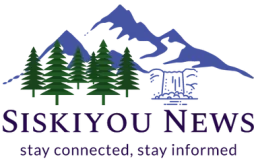Press Release
Scott Valley Agriculture Water Alliance
Written By Theodora Johnson
Sacramento, CA—The Scott River watershed’s drought is over, and the State’s emergency drought regulation should be rescinded immediately, a grassroots group told the State Water Resources Control Board (SWB) yesterday. Representatives of Scott Valley Agriculture Water Alliance (AgWA) laid out their case to board members of the SWB: the Emergency Regulation currently governing Scott Valley’s small ranching community has been unfair from the beginning and can no longer be justified after this winter’s heavy snows.
“Scott Valley was regulated in an unprecedented and unfair manner last year, and now we’ve had a very decent winter,” Theodora Johnson, a local rancher and AgWA spokesperson told Board members. “Our snowpack surveys so far are reading over 150%, yet we are still being required to reduce our groundwater use for the upcoming irrigation season by 30% to avoid 100% curtailment.”
Sari Sommarstrom, PhD, a retired watershed consultant in Scott Valley and co-founder of AgWA, gave a detailed description of Scott Valley’s current hydrologic conditions, as well as figures on the larger Klamath Basin (snowpack ranging from 131% at Trinity to 165% in the Upper Klamath).
Johnson gave the Board four reasons why AgWA believes Scott Valley’s community of small family farms and ranches has been treated unfairly:
- The Regulation mandated untenable summer flow standards that almost guaranteed curtailments.
- Scott Valley (and the Shasta) are the only ones in the whole state–or in history in California–to have had their groundwater curtailed.
- Similarly, the limits placed on how much livestock are allowed to drink during a curtailment are unprecedented.
- The Regulation prohibited stockwater in earthen ditches between September and the end of March, regardless of curtailment status—harming cattle operations and the groundwater recharge that naturally takes place through winter ditch use.
“The State expects us to reach instream flow standards, but we’re not allowed to make an effort to recharge our aquifer in the winter, when streamflows are abundant,” Johnson told the Board. “Give us a chance to do Environmental Managed Aquifer Recharge!”
Sommarstrom explained an ongoing “Environmental Managed Aquifer Recharge” research effort in Scott Valley, which started in 2016 and is designed to add enough water to the aquifer in the winter so that the aquifer can then contribute to Scott River flows in the late summer and early fall, for purposes of salmon and steelhead habitat access.
A third AgWA co-founder, hay farmer Lauren Sweezey, gave the Board two examples of Scott Valley operations financially harmed by the Regulation. One cattle rancher was forced to sell most of his herd at 50 percent of their value, and a hay farmer estimated a 25 percent loss in income because of the pumping restrictions.
Such losses were common in Scott Valley last year, which speaks to the “extremely high rate of compliance with the Regulation” in the valley, Johnson said.
Indeed, SWB staff reports that almost all eligible land in Scott Valley was included in Local Cooperative Solutions (LCSs), binding agreements which required a 30% reduction in groundwater use–with no compensation. According to third-party coordinating entities, Siskiyou Resources Conservation District and California Department of Fish and Wildlife, LCS violations were not an issue.
In her conclusion, Johnson said, “We implore this Board to recommend to Governor Newsom that our emergency drought status be lifted, so that when there truly is a drought emergency in the future, landowners will want to cooperate—and not feel like the State is the boy who cried wolf. If nothing else, please be sure that the next round of regulation operates on a sliding scale and does not ask us for 30% of our water—our livelihoods—on water years that don’t merit it.”
###
To watch the AgWA co-founders’ comments at the meeting on YouTube,
go to State Water Resources Control Board Meeting – April 4, 2023 – YouTube.
- Hay farmer Lauren Sweezey’s comments begin at 13:08.
Click { link } will start youtube video - Cattle rancher Theo Johnson’s comments begin immediately after, at 16:30.
Click { link } will start youtube video - Retired watershed consultant, Dr. Sari Sommarstrom’s comments begin at 1:08:00.
Click { link } will start youtube video
- Rubble from Copco No. 1 Dam Blast Temporarily Blocks Outlet, Raises Reservoir Level
- CalMatters: California once led in government transparency. It descended into secrecy and opacity
- The Code of the West…the Realities of Rural Living
- College of Siskiyou Spring Concert Schedule
- CalFire PR: BURN PERMITS REQUIRED May 1, 2024





